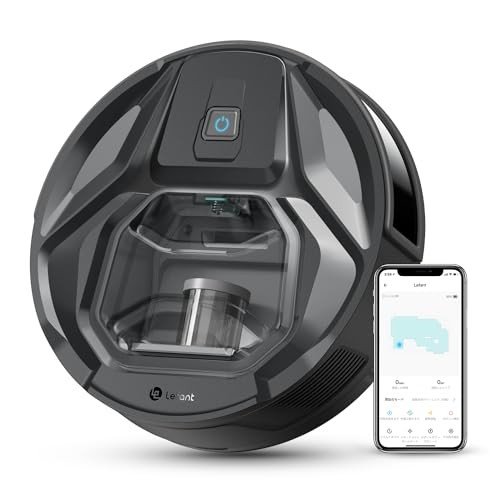20 Resources That Will Make You Better At Robotic Vacuum
The Rise of the Robotic Vacuum Cleaner: Revolutionizing Home Cleaning
In the realm of home appliances, robotic vacuum cleaners have become one of the most significant innovations recently. These autonomous gadgets offer benefit and performance, permitting house owners to preserve cleaner living areas without the drudgery of manual vacuuming. This short article checks out the evolution, functionality, benefits, and factors to consider regarding robotic vacuum, along with providing insights through information tables and regularly asked questions.
A Brief History of Robotic Vacuum Cleaners
The journey of robotic vacuum started in the late 20th century, with early prototypes failing to make significant strides in homes. Nevertheless, mop robot vacuum in innovation caused the intro of more refined models in the early 2000s. Companies such as iRobot and Neato played an essential role in popularizing these wise home gadgets.
Advancement Timeline of Robotic Vacuum Cleaners
Year
Milestone
1996
Launch of the first robotic vacuum, the ELECTROLUX TRINITY
2002
iRobot introduces the Roomba, an extensively acknowledged model
2012
Introduction of designs with sophisticated mapping capabilities
2020
Incorporation of artificial intelligence for enhanced navigation
2023
Designs with incorporated clever home connectivity and app control
How Robotic Vacuum Cleaners Work
Robotic vacuum cleaners make use of a mix of sensing units, mapping innovation, and expert system to browse and clean various surfaces successfully. Here's a streamlined overview of their core performance:
Sensors: Equipped with infrared or ultrasonic sensors, these gadgets can spot barriers, cliffs, and dirt, allowing them to browse through spaces without crashing into furniture or toppling down stairs.
Navigation: Most modern robotic vacuum cleaners include wise mapping technologies, enabling them to map out the home layout and enhance cleaning courses.
Cleaning Mechanism: Using brushes and suction power, robotic vacuums gather dirt, dust, and particles from numerous floor types, including carpets and wood.
Charging and Cleaning Schedules: After finishing a cleaning session or when their battery runs low, these robots immediately go back to their charging dock. Users can set cleaning schedules through smartphone apps, helping preserve a neat home easily.
Benefits of Robotic Vacuum Cleaners
Robotic vacuum cleaners use numerous benefits over traditional vacuuming techniques. Here are some of the crucial benefits:
- Time-Saving: Automated cleaning suggests house owners can allocate their time to other activities.
- Convenience: Scheduling cleaning sessions permits a tidy home without manual intervention.
- Thorough Cleaning: Many robotic models come with specialized brushes to tackle animal hair and provide deep cleaning on carpets and rugs.
- Smart Home Integration: Many systems work with clever home systems, using voice control and remote management.
Popular Features in Robotic Vacuum Cleaners
Function
Description
Mapping Technology
Produces a digital map of the cleaning location
Mobile App Control
Provides users the capability to start/stop or schedule cleaning sessions from another location
Self-Cleaning
Some designs have docking stations that can self-empty dust bins
Advanced Sensors
Identifies dirt more efficiently and browses better
Voice Control
Suitable with virtual assistants like Alexa and Google Assistant
Considerations Before Purchasing a Robotic Vacuum Cleaner
While robotic vacuum cleaners use many benefits, possible purchasers should think about a couple of factors before making a purchase. Here are some indicate bear in mind:
Key Factors to Evaluate
Floor Type: Certain models perform better on carpets while others stand out on difficult floors. auto hoover should pick flexible vacuums if they have mixed flooring.
Battery Life: Longer battery life enables for extended cleaning sessions. Try to find models that can cover large areas without frequent recharging.
Dustbin Capacity: A larger dustbin decreases the frequency of emptying, making cleaning less labor-intensive.
Noise Level: Some models run silently, which is ideal for homes with babies or sensitive family pets.
Upkeep: Users should also evaluate the ease of maintenance, particularly for filters and brushes.
Potential Drawbacks
- Cost: Robotic vacuum can be considerably more pricey than traditional vacuums.
- Efficiency: While they efficiently maintain cleanliness, they might not constantly match the deep cleaning effectiveness of manual vacuums.
- Challenge Navigation: Some designs might deal with specific kinds of furnishings or chaotic locations, potentially leading to missed out on spots.
FAQs About Robotic Vacuum Cleaners
Q1: How typically should I run my robotic vacuum cleaner?
A1: It normally depends on your family. For homes with pets or high foot traffic, running it daily is advantageous. In less active homes, you might find every other day is adequate.
Q2: Can robotic vacuum cleaners work on carpets?
A2: Most robotic vacuums can clean carpets; however, functions such as suction power and brush design can significantly impact their effectiveness on various carpet types.
Q3: Are robotic vacuum good for family pet hair?
A3: Yes, numerous models are particularly created to pick up pet hair and come with specialized brushes to avoid tangling.
Q4: What takes place when the vacuum runs out of battery?
A4: Most robotic vacuums automatically return to their charging dock when their battery is low, guaranteeing they are all set for the next cleaning session.
Q5: Can I manage my robotic vacuum with my mobile phone?
A5: Yes, numerous robotic vacuum come equipped with mobile apps that enable you to set up cleansings, display progress, and get notifications.
Robotic vacuum cleaners represent a substantial advancement in home-cleaning technology, combining benefit with performance to fundamentally alter how households keep cleanliness. As innovations continue to emerge, these gadgets are becoming progressively capable, using users not only time-saving services but also boosted cleaning experiences. As the market continues to grow, potential purchasers are encouraged to weigh the features, benefits, and factors to consider thoroughly to discover the best design tailored to their unique requirements. Whether it's a busy household, an animal fan, or somebody seeking automation in their cleaning routine, there's most likely a robotic vacuum cleaner that fits the costs.
